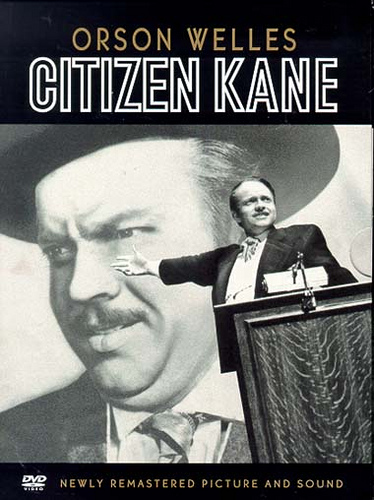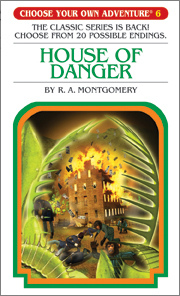This post has not been edited by the GamesBeat staff. Opinions by GamesBeat community writers do not necessarily reflect those of the staff.

Editor's note: Just when I thought I couldn't stand to read the phrase "gaming's Citizen Kane" one more time, Brian comes out with this, which includes his well-reasoned choice for gaming's not-quite Citizen Kane. And if you can find the strength to read still more about gaming and Citizen Kanes, you should also check out Aaron Rivers' take on the subject. -Demian
The recent ABC News piece in which IGN's Michael Thomsen attempted to argue that Metroid Prime is gaming's Citizen Kane — a "landmark in both technical innovation and pure creativity" — caused quite the Internet hullaballoo last week.
Destructoid's Anthony Burch posted a highly amusing "Rev Rant" rebuttal video, then followed up with a slightly longer piece further elucidating his point. He began by pointing out that Citizen Kane is, in fact, a landmark work because of the way in which Orson Welles used the particular strengths of the medium of film in order to tell his story in a way that would be impossible in other mediums: "Under Welles' direction, the filmmaker's tools of the trade were no longer a simple means to an end, but rather became provocative rhetorical devices in their own right."
The rest of Burch's piece was an utter destruction of Thomsen's original Metroid Prime argument, and pointed out how his claims are irrelevant at best and ludicrous at worst; I have to say I completely agree with him. I don't think video games have a Citizen Kane yet, but I do think we've come close (more on that after the jump).
Even though I am an enormous fan of Prime and its sequel — and the fact that I haven't played Corruption yet is my biggest regret about not owning a Wii — I must admit that while the game takes some liberties with how it gets its story across to the player, the way that it does so is not particularly unique, and certainly does not make full use of the strengths of the medium of video games.
In fact, I will go out on a limb here and say that nearly every single game — out of the thousands and thousands of games released in the 38 years since Spacewar was created in 1961 — has not even come close to making full use of the medium's strengths. Let's face it, folks…just about every game we play these days, regardless of the complexity of the narrative or the depth of its characters, is at its core a set of pre-scripted choices resulting in a set of pre-scripted outcomes.

In essence, in terms of narrative we're playing audiovisual Choose Your Own Adventure books.
All the choices we make in games — Karma Moments in Infamous, dialogue options in Mass Effect, and so on — may as well have "Turn to page XX" written after them.
Now, these are very sophisticated Choose Your Own Adventure books that we're playing, of course, but they're CYOA books nonetheless. And, to be honest, we're not going to do any better than this until A.I. technology evolves to the point where you can carry on a normal, verbal conversation with an NPC and not tell that you're not talking to a real person.
At that point, instead of playing an audiovisual CYOA book, we'll be playing audiovisual pen & paper role-playing games — where even though the path of a game's narrative may be scripted to start at one place and end at another, the journey taken to get there will be entirely dependent on how the personalities of the characters involved interact with the character being portrayed by the player.
We've seen the barest glimpse of what that might be like with Lionhead Studios' Milo tech demo for Project Natal, and I'll be very intrigued to see where this particular technology goes in the next ten years or so.
So where does that leave us now? If Prime isn't our Kane, and no other game with a narrative is anything more than a glorified flipbook, than what is?
First, we need to define what our criteria are in the first place. Personally, I would describe Citizen Kane as a structured experience that fully used the strengths of its medium in order to get its director's vision across to its viewers. Replace "viewers" with "players" in that sentence, and I think we're good.
Next, we need to define what the strengths of video games are as a medium when compared to other mediums of creative expression. Obviously, audiovisual interactivity is king — you can't interact with a book or a movie, and all the action in pen & paper RPGs takes place in your imagination.
Secondly, I think accurate modeling of real-world physics deserves a mention. Hollywood takes liberties with physics all the time — if it didn't, the MythBusters would be unemployed — and so do most games, but those that don't allow players to come close to experiencing certain real-life situations without having to leave their living rooms.
I think that's about it, but it gives me a decent starting point to come up with some examples of games that best make use of gaming's strengths. Even though, as I said before, I don't believe that gaming has had its Citizen Kane yet, there are some experiences out there that come pretty close.
When it comes to interactivity, Second Life is king. A virtual world where players can create any place, object, or person that they can think of, and then interact with it and with other players from around the world — no other gaming experience comes close. But, while Second Life is a landmark technological achievement in interactive expression, it's not really a "game" per se and doesn't fit my earlier definition; instead, it's a big, digital sandbox that is culturally acceptable for adults to play in, and has no particular message it wants to get across. So no dice there.
For games that best model real life, look no further than sim games like this month's Forza Motorsport 3, next March's Gran Turismo 5, or the long-standing Microsoft Flight Simulator. Now, I've never been to Laguna Seca racetrack in Monterey, and I doubt I ever will, but I do know exactly what that track looks like, and how damned hard it is to get a high-powered Dodge Viper down the corkscrew without spinning out. Or, if I ever get the urge to know what it's like to fly a 747 over Paris, I know that I'll be able to do it without having to spend hundreds of hours learning to fly a real plane, *or* risking my life actually doing it. Again, though, what's the message? Driving cars really fast is cool? Doesn't cut it.
No, my vote goes to a thin strip of blocky pixels stretching across your computer screen — Jason Rohrer's Passage.

Passage, released in 2007, is the "story of life" told in five minutes. You play as a man walking through a landscape, which begins with you on the left side of the screen in perfect clarity and the right in fuzzy uncertainty. As you move forward throug this landscape, your score increases — but it increases in greater increments if you search into the unknown above and below you and discover treasure chests. (Beware, not all treasure chests actually have treasure in them!)
You may also find a spouse to walk with you, and you earn double points from exploring when you do so — but with the two of you constantly together, you fit into fewer spaces.
As time goes on, you move from the left side of the screen to the right, visibly aging, and as you get closer and closer to the right side of the screen it gets clearer and clearer, while the left side of the screen gets fuzzier and fuzzier. Once you reach the right side of the screen, after about five minutes, your character abruptly disappears, replaced by a gravestone.
The choices presented to you in this game truly matter, as each time through your "life," you have to decide what's truly important to you. Spend all your time walking forward and exploring at the cost of searching out treasures, even though you can't possibly see everything there is to see? Spend all your time searching for treasures at the expense of seeing the landscape? Live your life with companionship but have your flexibility compromised, or go it alone? And, perhaps most importantly, at the end of the game, when all that's left of you is your tombstone, does your score even have meaning?
The metaphors are astounding, and the game truly uses the interactivity of video games to the fullest in order to tell its story — mainly because the story is whatever the player decides he wants it to be on that particular playthrough. Your life is your own, and your choices make it what it is, for good or for ill.
It is my belief that the message of Passage, as the creator intended it to be told, could only be delivered through the medium of video games, and for that, I will give it the highest praise I can give any narrative game:
It's no Citizen Kane, but it's the closest thing we have.
